Featured
 Harry Breaks Free From the Racial Contract—and Pays the Price. By Kali Holloway / The Nation
Harry Breaks Free From the Racial Contract—and Pays the Price. By Kali Holloway / The Nation
Harry told Oprah that he “hadn’t really thought about the mixed-race piece” of Markel’s identity causing any sort of particular uproar in either his own family or British press, though he added in the same breath, “My God, it doesn’t take very long to suddenly become aware of it.” Was it really a surprise? It seems obvious that if Harry, scion of the British Royal House, can distance himself from his toxic family and its obsession with whiteness, then it should be something lots more white folks should take on board. Read more
Political / Social
 Poll: Approval of Biden’s handling of coronavirus ticks up to 65 percent. By Gabriela Schulte / The Hill
Poll: Approval of Biden’s handling of coronavirus ticks up to 65 percent. By Gabriela Schulte / The Hill
President Biden‘s job approval on the coronavirus pandemic has ticked up to 65 percent, a new Hill-HarrisX poll finds. Sixty-five percent of registered voters in the March 5-8 survey said they approve of the job Biden is doing in handling the virus, a 1 percentage point increase from a Feb. 12-15 survey. Thirty-five percent said they disapprove of the job Biden is doing on the pandemic. Read more
Related: Democratic majority shrinks, but finds unity. By Cristina Marcos / The Hill
 Joy Reid’s truth-telling: The hidden wages of white supremacy and the N-word. By Chauncey Devega / Salon
Joy Reid’s truth-telling: The hidden wages of white supremacy and the N-word. By Chauncey Devega / Salon
“I’ll say it again: people on the right would trade all the tax cuts for the ability to openly say the n-word like in ‘the good old days. To them, not being able to be openly racist and discriminatory without consequence is oppression. Trump is the avatar for this “freedom.” For the most part, she is correct. White victimology is cacophonous. The usual suspects across the right-wing echo chamber responded to Reid’s observation with the howls of the guilty, much the same way that a criminal pleads his or her innocence while being arrested, or before the judge. Read more
 Don Lemon loses it on Sen. Tim Scott for ‘woke supremacy’ comment: ‘What are you doing?’ Yahoo News
Don Lemon loses it on Sen. Tim Scott for ‘woke supremacy’ comment: ‘What are you doing?’ Yahoo News
Don Lemon was unable to control his anger on CNN Tonight Wednesday when he unloaded on South. Carolina Senator Tim Scott, the only Black Republican in the Senate, for saying a day earlier on Fox News, “Woke supremacy is as bad as white supremacy.” Lemon was at a loss for words for a moment, and spoke calmly at first when he pointed out some incredibly large differences between white supremacists and “woke” individuals. Watch here
Related: Ron Johnson: If Trump’s Mob Were BLM Then I’d Be Concerned. By Peter Wade / Rolling Stone
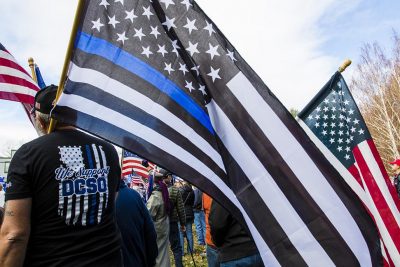 What the Rest of America Can Learn From My Experience Being Black in Trumpland. By Issac J. Bailey / Politico
What the Rest of America Can Learn From My Experience Being Black in Trumpland. By Issac J. Bailey / Politico
Trump supporters and their sympathizers are right: This is their America. But make no mistake, this is our America, too. We don’t have to apologize to anyone for wanting to shape it in our image as much as they want it to remain in theirs. Before January 6, I didn’t fully understand the importance of making that clear. I won’t forget again. And I won’t allow my kids to forget, either. Read more
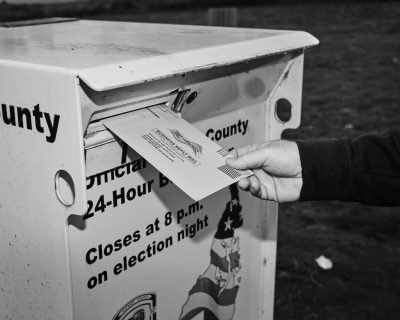 Joe Manchin and Stacey Abrams Can Meet on Common Ground. By Ezra Klein / NYT
Joe Manchin and Stacey Abrams Can Meet on Common Ground. By Ezra Klein / NYT
There were two columns I wanted to write this week. One was about Senator Joe Manchin’s comments cracking the door open on filibuster reform. The filibuster “should be painful and we’ve made it more comfortable over the years,” he said on “Fox News Sunday.” “Maybe it has to be more painful.” With those words — and, to be fair, a few more Delphic utterances, which I’ll get to shortly — Manchin reignited the possibility of filibuster reform and perhaps the restoration of the Senate. Read more
Related: For Democracy to Stay, the Filibuster Must Go. The Editorial Board / NYT
Related: How Never Trumpers Are Becoming Pro-Democracy Republicans. Jonathan Chait / NY Magazine
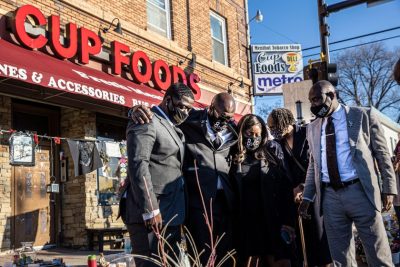 Minneapolis will pay record $27 million settlement to George Floyd’s family. By Daniel Politi / Slate
Minneapolis will pay record $27 million settlement to George Floyd’s family. By Daniel Politi / Slate
The city of Minneapolis will pay $27 million to settle a lawsuit brought by the family of George Floyd. Attorneys for the family characterized it as the largest pretrial settlement in a civil rights wrongful death lawsuit in the history of the United States. But it came just at the murder trial of one of the former police officers who is accused of killing him is set to begin and some legal experts have raised fears that it could complicate that case. Read more
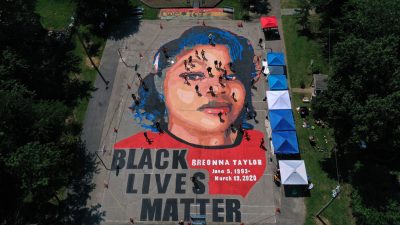 Breonna Taylor Was Slain One Year Ago Today. The Tragic Police Raids Continue. By Samantha Michaels / Mother Jones
Breonna Taylor Was Slain One Year Ago Today. The Tragic Police Raids Continue. By Samantha Michaels / Mother Jones
One year later, the racial justice protests go on, yet the protesters’ demands remain largely unmet. Three police officers lost their jobs because of their roles in the raid, but none were prosecuted for killing Taylor. The only officer now facing criminal charges is under investigation for firing his weapon into a neighboring home, damaging some walls. And while some big cities cut their police budgets during the pandemic, leaders in Louisville voted to slightly increase funding for local police after Taylor’s death. Read more
 Biden condemns ‘vicious’ hate crimes against Asian-Americans. By Madeleine Ngo / NYT
Biden condemns ‘vicious’ hate crimes against Asian-Americans. By Madeleine Ngo / NYT
President Biden on Thursday evening condemned “vicious” hate crimes against Asian-Americans, who he said have been “attacked, harassed, blamed and scapegoated” during the coronavirus pandemic. “They’re forced to live in fear for their lives just walking down streets in America,” Mr. Biden said during a prime-time address at the White House, marking a year since the coronavirus was declared a pandemic by the World Health Organization. “It’s wrong. It’s un-American, and it must stop.” Read more
 Black Americans and women continue to face discrimination in skilled trades. By Paul Solman and Lee Koromvokis / NPR
Black Americans and women continue to face discrimination in skilled trades. By Paul Solman and Lee Koromvokis / NPR
The winter storms that devastated Texas last month led to a major water crisis. But for weeks afterward, there weren’t enough plumbers to help customers with the damage. All of this underscores the need for more of these skilled workers. But for women and workers of color, there can be even greater obstacles. Paul Solman has the story for our series “Work Shift.” Read more
 Redlining, Predatory Inclusion, and Housing Segregation. By Paige Glotzer / AAIHS
Redlining, Predatory Inclusion, and Housing Segregation. By Paige Glotzer / AAIHS
As a historian of housing, I too have struggled with the limitations of redlining. In particular, its termination in 1968 makes it inadequate for answering the two questions people most frequently ask me: why does housing segregation persist nearly a century after the creation of redlining maps and what can be done to fight housing segregation today? Keeanga-Yamahtta Taylor’s Race for Profit: How Banks and the Real Estate Industry Undermined Black Homeownership provides a blueprint that goes beyond the history of redlining to answer both. Read more
 Former prosecutors, judges join push for new trial in Alabama death row case. By Mark Berman / Wash Post
Former prosecutors, judges join push for new trial in Alabama death row case. By Mark Berman / Wash Post
A group of former prosecutors and judges in Alabama this week joined a district attorney in seeking a new trial for Toforest Johnson, a Black man who has spent two decades on death row. They join voices from across the legal system — including scholars and defense attorneys — who have taken aim at a death sentence in Alabama, one of the country’s most active death-penalty states. Read more
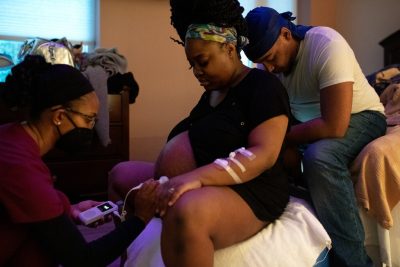 Why Black Women Are Rejecting Hospitals in Search of Better Births. By Alice Proujansky / NYT
Why Black Women Are Rejecting Hospitals in Search of Better Births. By Alice Proujansky / NYT
Black mothers in the United States are four times as likely to die from maternity-related complications as white women. In New Jersey, it’s even more alarming: A Black woman is seven times as likely to die from pregnancy-related causes as a white one. A growing awareness of these disparities, along with the fear of giving birth in a hospital during a pandemic, is leading some pregnant Black women to seek out other options. It’s one of the reasons Ms. Eaddy-Onque decided to use a birthing center when expecting her second child, Anastasia. Read more
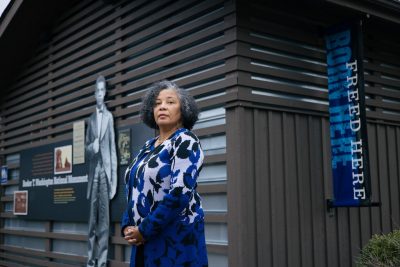 The Officers Danced at a Black Lives Matter Rally. Then They Stormed the Capitol. By Sabrina Tavernise / NYT
The Officers Danced at a Black Lives Matter Rally. Then They Stormed the Capitol. By Sabrina Tavernise / NYT
She believes that the country is at the beginning of something. The old order is starting to crack. Demographics are shifting. Young people are marching. Franklin County has made progress too: In December, it got its first Black school superintendent .But many in the county fervently believe that the election was stolen. Ms. Blue sees that as another Lost Cause narrative. White people, she said, are mourning more than just an election. They believe they are losing the right to determine what version of America is out there in the world. And that, she said, has never gone well for Black people in Franklin County. “History tells me we are in a very dangerous time,” she said. Read more
 USDA Secretary Vilsack Hopes To Boost Number Of Black Farmers. By Michel Martin and James Doubek / NPR
USDA Secretary Vilsack Hopes To Boost Number Of Black Farmers. By Michel Martin and James Doubek / NPR
Tucked into President Biden’s $1.9 trillion coronavirus relief law are provisions meant to help Black farmers, who have faced generations of systemic discrimination. As part of the American Rescue Plan, $4 billion is going toward debt relief for “socially disadvantaged” farmers to pay off debts that have prevented their farms from growing, the Department of Agriculture said. Another $1.01 billion is being used to create a racial equity commission. Socially disadvantaged farmers are a group that includes African Americans, Hispanics, Asian Americans and Native Americans. Read more
Historical / Cultural
 An Honest History of Texas Begins and Ends With White Supremacy. By Cassey Michel / The New Republic
An Honest History of Texas Begins and Ends With White Supremacy. By Cassey Michel / The New Republic
This month, one Texas Republican House member filed legislation to force the creation of a new project for supposedly “patriotic education.” Calling for the formation of an “1836 Project,” named after the year Texas declared independence from Mexico, the bill models itself after former President Donald Trump’s ill-starred “1776 Project.” Trump’s effort—which barely lasted a week before the new administration obliterated it wholesale—was itself a response to The New York Times’ “1619 Project,” which recentered slavery and human bondage in the story of colonial America. Read more
 A push to save landmarks of the ‘Great Migration’ — and better understand today’s racial inequities. By Mark Guarino / Wash Post
A push to save landmarks of the ‘Great Migration’ — and better understand today’s racial inequities. By Mark Guarino / Wash Post
The Great Migration covers the period between 1916 and 1970 when Northern cities drew millions of Black Americans seeking greater economic opportunities and fleeing the racial violence and Jim Crow laws of Southern states. It was a seminal event. Yet many of the significant sites of those years have fallen into disrepair or worse, the memories they held forgotten. But that is changing. Read more
 The lynching that Black Chattanooga never forgot takes center stage downtown. By Chris Moody / Wash Post
The lynching that Black Chattanooga never forgot takes center stage downtown. By Chris Moody / Wash Post
For many of Chattanooga’s Black residents, the city’s beloved pedestrian bridge isn’t an architectural beacon of the New South, but a painful reminder of the old: Before the Walnut Street Bridge became a tourist draw, it was a lynching ground. In 1893 and again in 1906, enraged White mobs hanged Black men from the bridge. Read more
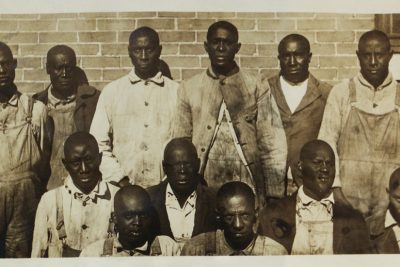 The Forgotten History of America’s Worst Racial Massacre. By Nan Elizabeth Woodruff / NYT
The Forgotten History of America’s Worst Racial Massacre. By Nan Elizabeth Woodruff / NYT
One hundred years ago this week, one of the worst episodes of racial violence in American history unfolded in Elaine, Ark., a small town on the Mississippi. Details remain difficult to verify. The perpetrators suppressed coverage of the events, and the victims, terrified black families, had no one to turn for help. In fact, local police were complicit in the killing of untold numbers of African-Americans. Read more
 Army continues to honor Confederate unit histories, even as base names draw scrutiny. By Alex Horton / Wash Post
Army continues to honor Confederate unit histories, even as base names draw scrutiny. By Alex Horton / Wash Post
The names of 10 Army posts christened after Confederate officers have been under intense scrutiny following social justice protests last summer. But far from public view, the Army is also grappling with the other ways it lionizes aspects of the Confederacy, which killed and wounded more than 420,000 U.S. troops to protect the institution of slavery. A soldier in 1st Battalion, 167th Infantry Regiment of the Alabama National Guard, wears the “4th Alabama” tab in Afghanistan in 2013. The unit traces its lineage through 4th Alabama, which served in the Confederate Army. Soldiers in the unit stopped wearing the tab in July. Read more
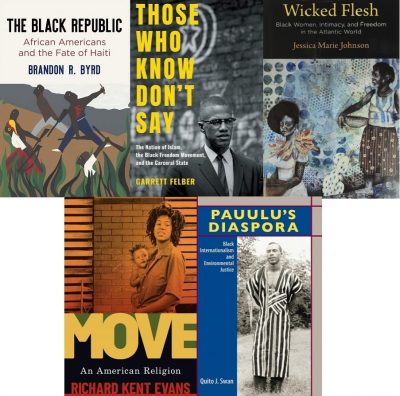 2021 Finalists for the Pauli Murray Book Prize in Black Intellectual History. By AAIHS Editors
2021 Finalists for the Pauli Murray Book Prize in Black Intellectual History. By AAIHS Editors
The African American Intellectual History Society (AAIHS) is pleased to announce the finalists for the fourth annual Pauli Murray Book Prize for the best book in Black intellectual history. Named after lawyer, author, and women’s rights activist-intellectual Pauli Murray, this prize recognizes the best book concerning Black intellectual history (broadly conceived) published between January 1, 2020 and December 31, 2020 by a member of AAIHS. Read more
 Genre-busting musician Michael Kiwanuka on setting himself apart – CBS News
Genre-busting musician Michael Kiwanuka on setting himself apart – CBS News
Michael Kiwanuka’s music does not fit in any one category; rather, it’s a mix: blues, rock, funk, R&B, jazz and soul. “I think you should always kind of keep the listener or the audience guessing a little bit, you know?” he said. The singer-songwriter has been called “Britain’s Otis Redding. The thirty-three-year-old Kiwanuka is now on his third album. But it’s this song, “Cold Little Heart,” that put him on America’s music map: Read more
 How Can Blackness Construct America? /NYT
How Can Blackness Construct America? /NYT
A new collective of Black architects and artists, formed out of a show now at MoMA, aims to “reclaim the larger civic promise of architecture. ”What’s below is a conversation with members of the Black Reconstruction Collective, which came together during the past year and a half, in tandem with an exhibition now at the Museum of Modern Art called “Reconstructions: Architecture and Blackness in America.” The collective’s members are the 10 architects, artists and designers in the exhibition. Read more
 Spike Lee Predicts the Future. By Kara Swisher / NYT
Spike Lee Predicts the Future. By Kara Swisher / NYT
Spike Lee has a knack for seeing what’s ahead. After Eric Garner’s death in 2014 and George Floyd’s death last year, Mr. Lee’s 1989 film “Do the Right Thing,” which culminates in a violent confrontation between a Black character and a white police officer, was seen as downright prophetic. “We had the crystal ball,” he says, “and this is not the first time this happened in my four-decade career.” In this episode of “Sway,” Kara Swisher and Mr. Lee talk about the prescience of his movies and his latest feature film, “Da 5 Bloods,” which follows four Black veterans of the Vietnam War as they hunt for treasure. Plus, he discusses the future of Hollywood and streaming. Read more
Related: Black inclusion gap costs Hollywood $10 billion a year, report says. By Ryan Faughnder / LA Times
Sports
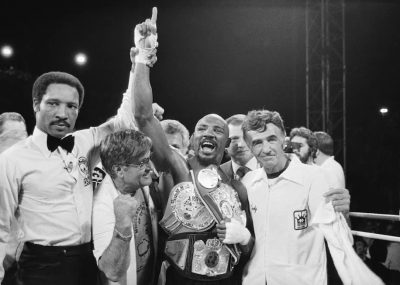 Marvin Hagler helped boxing soar in the 1980s, and nothing topped his epic TKO of Thomas Hearns. By Gene Wang / Wash Post
Marvin Hagler helped boxing soar in the 1980s, and nothing topped his epic TKO of Thomas Hearns. By Gene Wang / Wash Post
 University of Texas “Eyes of Texas” controversy: The Constitution and Supreme Court have a say. By Tyler Valeska / Slate
University of Texas “Eyes of Texas” controversy: The Constitution and Supreme Court have a say. By Tyler Valeska / Slate
On Tuesday, the university published a committee report on the song’s history and the recent controversy. The report concluded that the song, despite debuting at a 1903 minstrel show, “had no racist intent in that it was intended to parody the famous phrases of the university president.” The song will continue to be played at games. But Hartzell acknowledged at a press conference that, going forward, student involvement will be optional: “Whether it’s the case of the athletes standing on the field, or the fans in the stands as we sing, there’s going to be no punishment, no mandate, no requirement if people choose not to participate.” Read more
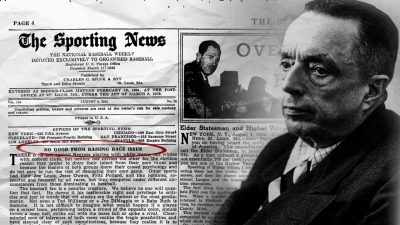 J.G. Taylor Spink’s racist baseball legacy lasted years but truth won. By Chris Lamb / USA Today
J.G. Taylor Spink’s racist baseball legacy lasted years but truth won. By Chris Lamb / USA Today
J.G. Taylor Spink, editor of the Sporting News, knew he needed to do something to keep baseball from becoming integrated. The story of Spink shows how the fight to integrate baseball wasn’t solely about the teams and players. Integration, and the opposition to it, was also about the power of Spink, and how he was able to single-handedly slow integration for years. In many ways, Spink’s anti-integration impact could be felt decades after Jackie Robinson crossed the color line. Read more
Site Information
Visit our home page for more articles, book/podcast and video favorites. And at the top of this page register your email to receive notification of new editions of Race Inquiry Digest. Click here for earlier Digests.
About Race Inquiry and Race Inquiry Digest. The Digest is published on Mondays and Thursdays.
Use the buttons below to share the Digest in an email, or post to your Facebook, Linkedin or Twitter accounts.